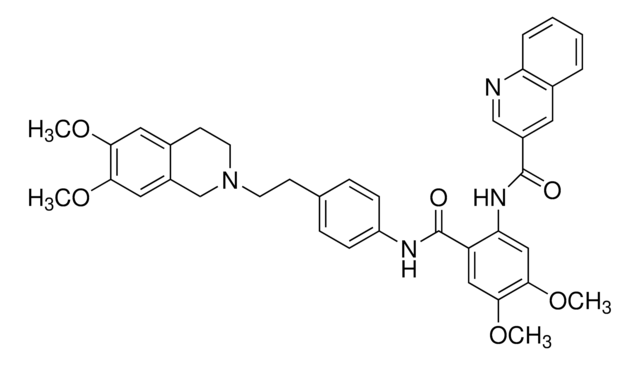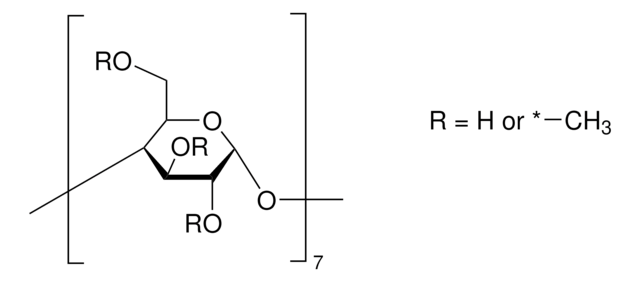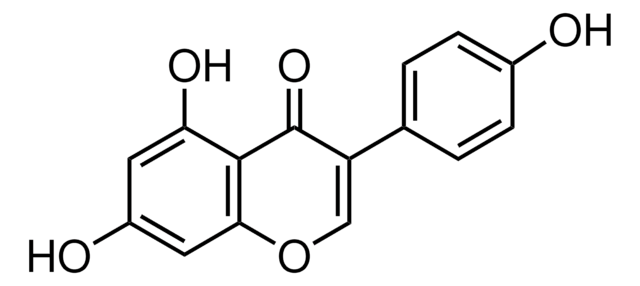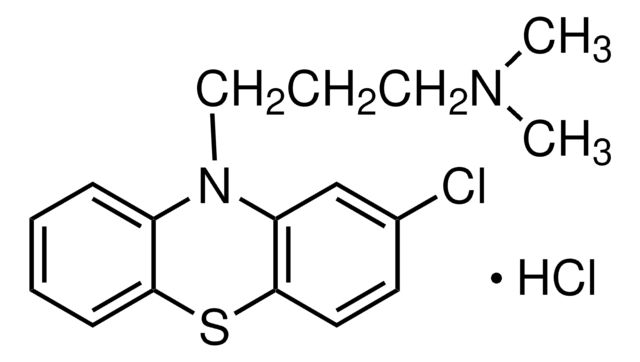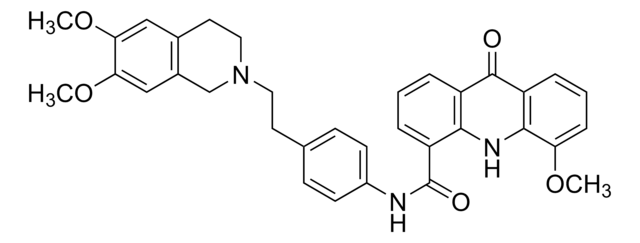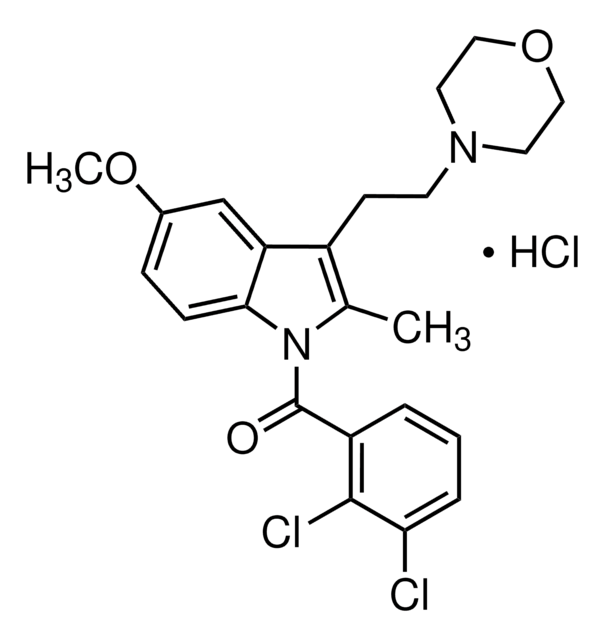SML3678
ML-SI3
≥98% (HPLC)
Sinónimos:
N-[2-[4-(2-Methoxyphenyl)-1-piperazinyl]cyclohexyl]benzenesulfonamide
Iniciar sesiónpara Ver la Fijación de precios por contrato y de la organización
About This Item
Fórmula empírica (notación de Hill):
C23H31N3O3S
Número de CAS:
Peso molecular:
429.58
MDL number:
UNSPSC Code:
12352200
NACRES:
NA.77
Productos recomendados
Quality Level
assay
≥98% (HPLC)
form
powder
color
white to beige
solubility
DMSO: 2 mg/mL, clear
storage temp.
-10 to -25°C
Biochem/physiol Actions
ML-SI3 is a 4-diastereomer racemate (2 cis and 2 trans isomers) with a cation channel TRPML1-blocking (IC50 = 3.1 μM/trans, 18.5 μM/cis against 5 μM ML-SA1-induced cellular calcium response) and TRPML2-activating activity (EC50 = 3.3 μM/trans, 9.4 μM/cis), while exhibiting much weaker TRPML3 potency (EC50 = 28.5 μM/trans, IC50 = 29.0 μM/cis). ML-SI3 is shown to compete against ML-SA1 for binding the same TRPML1 hydrophobic cavity. Comparing with ML-SI1 (GW405833), ML-SI3 is more potent and not agonist-dependent, effectively antagonizing against TRPML1 activation by both MK6-83 and ML-SA1.
Storage Class
11 - Combustible Solids
wgk_germany
WGK 3
flash_point_f
Not applicable
flash_point_c
Not applicable
Elija entre una de las versiones más recientes:
Certificados de análisis (COA)
Lot/Batch Number
Lo sentimos, en este momento no disponemos de COAs para este producto en línea.
Si necesita más asistencia, póngase en contacto con Atención al cliente
¿Ya tiene este producto?
Encuentre la documentación para los productos que ha comprado recientemente en la Biblioteca de documentos.
Philip Schmiege et al.
Structure (London, England : 1993), 29(11), 1295-1302 (2021-06-26)
Transient receptor potential mucolipin 1 (TRPML1) regulates lysosomal calcium signaling, lipid trafficking, and autophagy-related processes. This channel is regulated by phosphoinositides and the low pH environment of the lysosome, maintaining calcium levels essential for proper lysosomal function. Recently, several small
Wuyang Wang et al.
Proceedings of the National Academy of Sciences of the United States of America, 112(11), E1373-E1381 (2015-03-04)
Upon nutrient starvation, autophagy digests unwanted cellular components to generate catabolites that are required for housekeeping biosynthesis processes. A complete execution of autophagy demands an enhancement in lysosome function and biogenesis to match the increase in autophagosome formation. Here, we
Nuestro equipo de científicos tiene experiencia en todas las áreas de investigación: Ciencias de la vida, Ciencia de los materiales, Síntesis química, Cromatografía, Analítica y muchas otras.
Póngase en contacto con el Servicio técnico